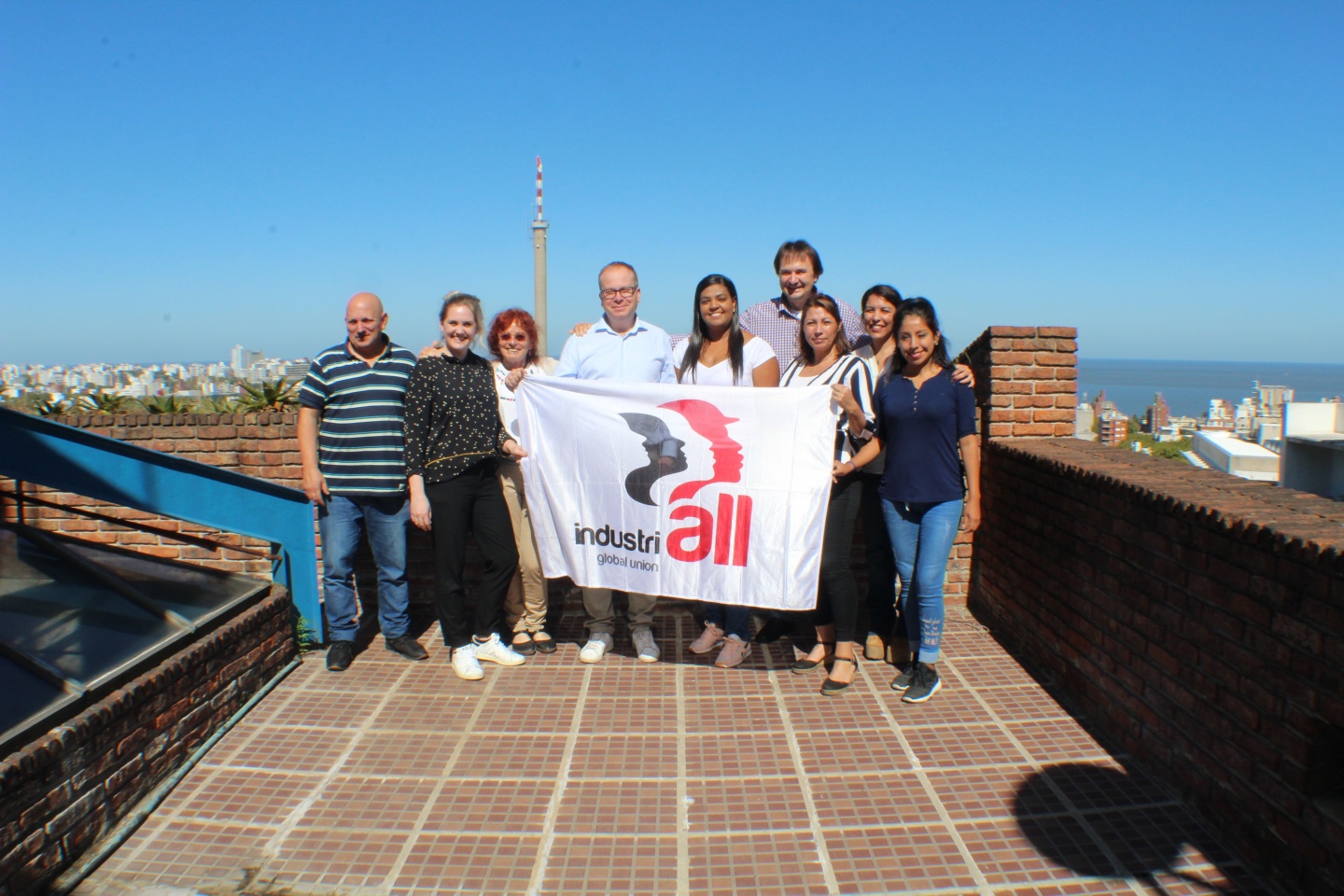Read this article in:
- Español
English
18 April, 2019Representatives from Swedish unions IF Metall and Unionen met with IndustriALL Global Union leaders in Uruguay to plan the project to build union power in Latin America.
On 8 April, Magnus Kjellson and Pamela Valenzuela from Unionen, together with Fanny Högrell from IF Metall, attended a meeting at IndustriALL's regional office in Montevideo. The aim was to assess the achievements of the “Construyendo poder sindical en América Latina” project, which seeks to build union power in Latin America, and plan the next steps.
IndustriALL's regional secretary, Marino Vani, told them about the political, economic and structural challenges facing affiliates in the region. He also explained the strategies in place to foster unity among trade unions and strengthen the voice of workers in the industry.
The project seeks to meet the objectives set out in IndustriALL's Action Plan while also analysing and addressing weaknesses, with a view to ensuring that unions can safeguard workers' rights and help to drive change in the region.
Meeting participants highlighted the importance of working with and strengthening the regions "macro sectors", a strategy introduced by IndustriALL at its 2016 Congress. Meetings that bring together these macro sectors cover the entire supply and production chain of the multinationals present in the region, which means that most affiliates attend.
They also discussed specific capacity-building projects for affiliates in selected countries. The work of the gender working group, which comprises women managers and union leaders from more than ten countries in the region, was also a focus of the meeting.
The Swedish union representatives shared their concerns about the rise of right-wing nationalism in many countries in Europe, including Sweden, as this has a direct impact on international union cooperation.
Many Nordic unions are under pressure from government development and cooperation agencies to show that the projects they support deliver concrete results and to ensure that they can oversee the actions taken in implementing countries.
After taking stock of these new developments and their impact on international union cooperation, meeting participants agreed to keep working together to ensure that the project remained viable.




